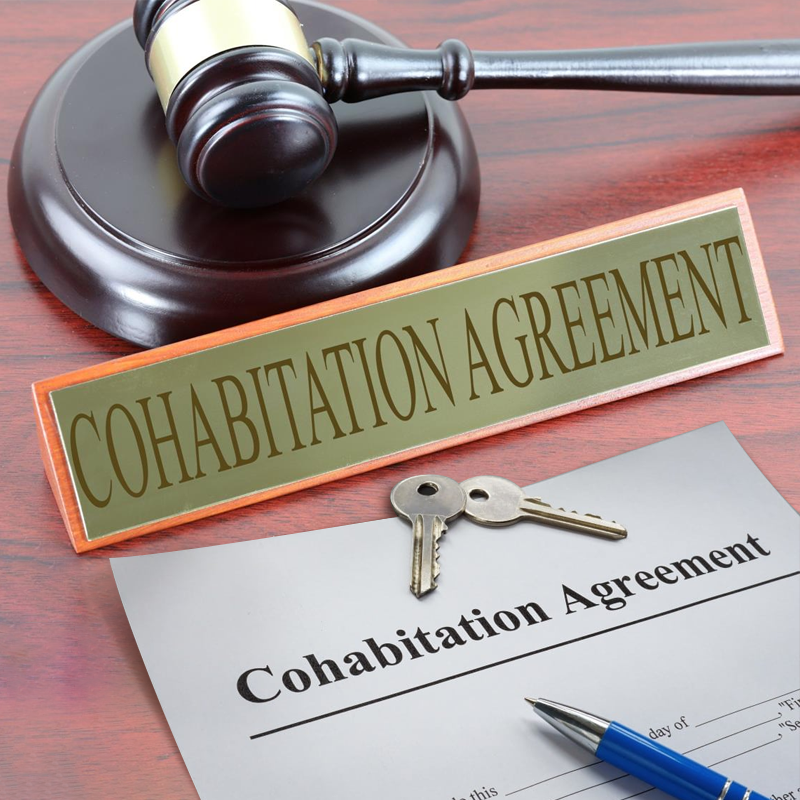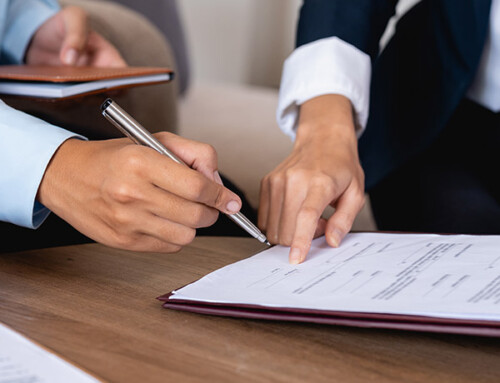- Key points to takeaway:
- A cohabitation agreement should be clear and unambiguous.
- It is essential to obtain legal advice before preparing an agreement.
- The best time to make a cohabitation agreement is before you move in together.
- A cohabitation agreement should be drafted to reflect your personal circumstances.
- Give yourselves at least four weeks to draft the agreement before making a major financial commitment like buying a property or getting married.
- The agreement can be varied or even revoked at any time in the future, as long as you both agree in writing.
A cohabitation agreement is a legal contract between unmarried couples who are living together or intend to live together.
A cohabitation agreement is a very flexible document, and it can set out arrangements for anything relevant to your lives together. This might include finances, property, and children. Typically, a couple uses a cohabitation agreement to clarify details like:
- Who owns what at the start of the cohabiting or at the point the agreement is signed
- How jointly owned items should be split if you separate
- Financial commitments like payments of household bills and other outgoings
Cohabitation agreements are legally binding. It is always advisable to obtain legal advice before preparing or signing an agreement as agreements can be set aside by a court if they were not fair and reasonable at the time of signing.
What’s the purpose of the cohabitation agreement?
A good agreement should identify property to be ring-fenced so that it’s not shared with your partner if you decide to separate. A great agreement should consider how that property might change and how provision can be made for that. Due consideration should be given to all the important factors.
When should I draw up a cohabitation agreement?
The best time to make a cohabitation agreement is before you move in together however, you can make a cohabitation agreement at any point in your relationship.
What does a cohabitation agreement look like?
A cohabitation agreement should be bespoke to your circumstances and a random template from the internet is unlikely to give due consideration to your specific position. This means that it might cover everything you want it to and worse still, it could be capable of challenge in future. A court can set aside an agreement between a couple if the agreement wasn’t fair and reasonable when it was signed. The agreement is less likely to be fair and reasonable if it hasn’t been specifically prepared for the people who are signing up to it or if they have not had appropriate advice.
What should I include in the agreement?
Generally, cohabitation agreements are used to list the assets each party wants to keep separate, for example, a house, art, savings, or investments. It’s crucial to also think about anything else important to you, for example, pets if you have them or if you decide to get them in the future. If your dog Rex is your one true love have you considered everything that might arise if you split up?
What should I not include in the agreement?
If you agree it is fair and reasonable, and you have enough information to objectively make that assessment, then just about anything can be included.
What if circumstances change in the future?
An agreement is always capable of being changed or even revoked altogether. People sometimes do this when something significant changes in their lives, for example, if you decide to have children or decide to marry. You may also want to revise the agreement with your Family Lawyer if one of you has a significant change in your financial positions due to a promotion, inheritance or even a lottery win!
How long does it take to get a cohabitation agreement?
Give yourselves at least four weeks before a big event like buying a property together or getting married. An agreement can be prepared in less time, but you could expose yourself to a rushed agreement that may not be entirely fair or well thought through.
Our team of solicitors have extensive experience with Agreements for every stage of a relationship and have a track record for ensuring you get what you need from your agreement.
At Johnson Legal we can assist you to ensure you are protected before, during and after any cohabiting relationship. For advice, contact us now on 0131 622 8477 for a free initial consultation with one of our solicitors or fill out our enquiry form here and we’ll get back to you.







